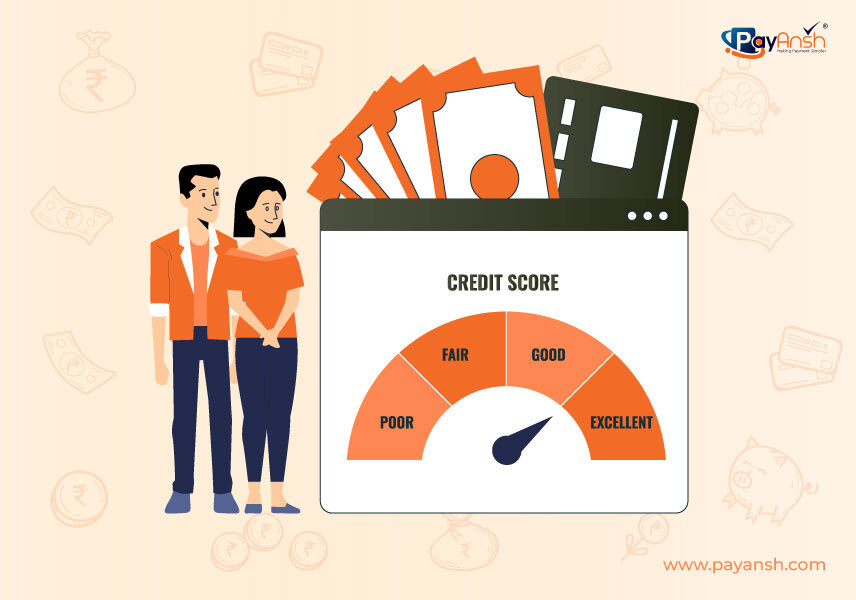A strong credit rating is ess
April 04, 2023Having Multiple Credits Cards: Does it Affect Credit Score?

Having several credit cards might affect your credit score
in both positive and bad ways. On the one hand, having several credit cards
might help you keep your credit utilisation rate low, which is a crucial
component of your credit score. Having an excessive number of credit cards,
however, might result in overspending and missing payments, which can lower
your credit score.
Your financial behaviour, or how prudently you use your
credit cards, will have a significant impact on the impact of having several
credit cards on your credit report and credit score. No matter how many credit
cards you have, you must always pay your bills on time and keep your credit
card balances low.
If you currently have a number of credit cards, applying for
more won't likely hurt your credit score, but you should never apply for too
many new cards at once. Too many hard inquiries will arise from applying for
too many new credit cards at once, which will lower your credit score
immediately. Nevertheless, if you handle your cards well, having additional
credit cards will allow you to raise your credit limit, which will raise your
credit score.
In this post, we'll look at how having several credit cards
might affect your credit score and offer some advice on how to handle them to
keep your score in good standing. Along with debunking some widespread myths
regarding credit cards and credit ratings, we'll also share some helpful tools
for managing your credit.
What impact does having several credit cards have on your credit rating?
Your credit score is influenced by many factors than just
the amount of credit cards you have. No matter how many credit cards you
have—two or twelve—if you don't pay them off in a timely manner, your credit
score will suffer.
On the other hand, having more credit cards can result in a
rise in your credit score if you use them responsibly and pay the payments on
time and in full each month. mainly because having additional credit cards
would increase your credit limit. To demonstrate responsible credit management
and raise your credit score, experts advise utilising no more than a modest
percentage of your available credit each month, preferably no more than 30%.
Can having several credit cards lower your score?
Your credit score is more influenced by how you apply for
new credit cards and how you use them than by the number of cards you have. For
instance, if you apply for too many credit cards at once, it may result in
several hard inquiries on your credit report quickly, which will lower your
credit score. As an example of how simultaneously applying for many credit
cards might lower your credit score:
·
The average age of your credit history might be
lowered by more recent credit. Longer credit histories are rewarded by credit
bureaus with higher credit ratings.
·
Your credit score may decrease if you have more
recent credit accounts since you won't have enough credit history to
demonstrate your financial behaviour.
·
A hard inquiry, which might temporarily lower
your credit score, is made by the lender when you apply for new credit in order
to examine your credit report. despite the fact that with time, your credit
score might improve.
·
The greater credit limit that comes with
multiple credit cards may encourage you to spend more than you can afford to
pay back each month. Your credit score might be impacted by paying your credit
card payments late or going into default.
·
If you have several credit cards, it could be
challenging to remember when each one is due, which raises the possibility that
you'll forget to make a payment.
·
Since it will lower your overall credit limit,
cancelling your credit card might also impact your credit score. Therefore, you
should refrain from applying for new credit cards if you are unsure of how you
intend to utilise them in the long run.
Can having several credit cards raise your score?
Since each credit card has its own credit limit, having many
credit cards might increase your overall credit limit. Depending on how much
you charge to your cards and how you repay them, having several credit cards
may or may not improve your credit score. Your credit score might be raised if
you consistently pay all of your credit card bills in full before the due date
and maintain a credit utilisation ratio of less than 30% of your available
credit limit.
You should be aware that missed payments lower your credit
score for a long period and remain on your credit record for over five to seven
years. Nonetheless, even when an account is terminated, a good payment history
continues to appear on your credit report for almost ten years. Consequently,
paying off your credit cards on schedule will raise your credit score.
What number of credit cards is excessive?
Well, nobody is going to be able to tell you how many credit
cards are optimal. You should concentrate on the benefits and usage of your
credit cards rather than the number of credit cards you have. Consider the
advantages, yearly fees, credit limit, and other factors before applying for a
new credit card. No matter how many credit cards you hold, your credit scores
will remain healthy as long as you maintain a low credit utilisation ratio and
always pay your bills on time.
Conclusion
In conclusion, having several credit cards might affect your
credit score in both positive and bad ways. Understanding how your credit
utilisation, payment history, and other factors might affect your credit score
is crucial. You should also use your credit cards responsibly to keep your
score in good standing. Monitoring your credit utilisation rate, setting up
automated payments, and routinely reviewing your credit report for mistakes are
some advice for managing numerous credit cards. Keep in mind that your credit
score affects your financial well-being, and taking measures to preserve a
decent score can help you reach your financial objectives.
.jpg)
.jpg)
.png)
